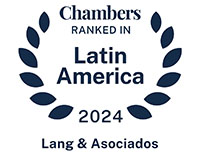As of June 3, 2022, an amendment to articles 70, 94, 94 bis, 95, 96, 97, and 100 of the Costa Rican Labor Code came into force. This amendment implemented changes to the leaves and privileges of protection against termination without a cause, related to maternity and paternity.
New and different leaves were created called “special leaves”, in addition to the well-known maternity leave, namely,
- Individuals adopting minors singularly: 3 months
- Individuals jointly adopting a minor. In this case, the leave may be divided between both adopters and may be enjoyed jointly or alternately, at the decision of the adopters: 3 months
- Leave if the mother dies in childbirth or during maternity leave. In this case, the biological father (in his condition as an employee) will be entitled to enjoy the special postpartum leave that would have corresponded to the mother. If a biological father of a child whose mother died from childbirth is not the one providing care for his newborn, the leave may be requested by another individual, before their employer, if such person proves he or she will be the caregiver for the newborn: 3 months
- Paternity leave: This leave only applies to biological fathers (men): 2 days per week during the first 4 weeks of the child’s life, that is, 8 days in total.
In addition, other aspects were modified:
- The scope of the privileges of protection against termination was extended so that employees under any of the categories mentioned before will enjoy the same benefits that previously applied exclusively to pregnant and breastfeeding employees (mothers), that is, employees cannot be terminated, without just cause, during the term of the leave. Employers may terminate employees with cause for serious disciplinary reasons, under Article 81 of the Labor Code of Costa Rica; however, their termination must be authorized, in advance, by the Ministry of Labor of Costa Rica.
- Employers are required to grant leave with pay of up to one day, to employees, so they can obtain medical certificates on pregnancy and lactation. Also, they must grant mothers or employees who are responsible for a child, as explained, a leave with pay to attend medical appointments with the child/ward.
- Clear rules were established on breastfeeding times. Although it is already customary to apply these rules, they were materialized in the Labor Code of Costa Rica, in such a way that the breastfeeding mothers (employees) now can negotiate how they will take their daily breastfeeding time
- 15 minutes every three hours.
- 30 minutes two times a day.
- One hour at the beginning of the shift.
- One hour before the end of the shift.
- Come to work one hour later or leave their shift one hour earlier
- In addition, the cap on compensation in cases of wrongful terminations during the breastfeeding period (originally ten days’ salary) was removed. Instead, a Judge may discretionarily order compensation.
- Employers are required to have a lactation room at the workplace. Previously, the Labor Code of Costa Rica established this obligation only for employers that employed more than thirty breastfeeding women. However, under these new rules, lactation rooms are required if there is at least one employee in the breastfeeding period.
- The Labor Code now expressly prohibits requiring medical proof of pregnancy status as a condition for employment. Requiring a medical proof of pregnancy status has been considered a discriminatory practice in Costa Rica for many years, however, the changes introduced by this legislation now expressly regulate the matter in the Costa Rican Labor Code.


.jpg)




